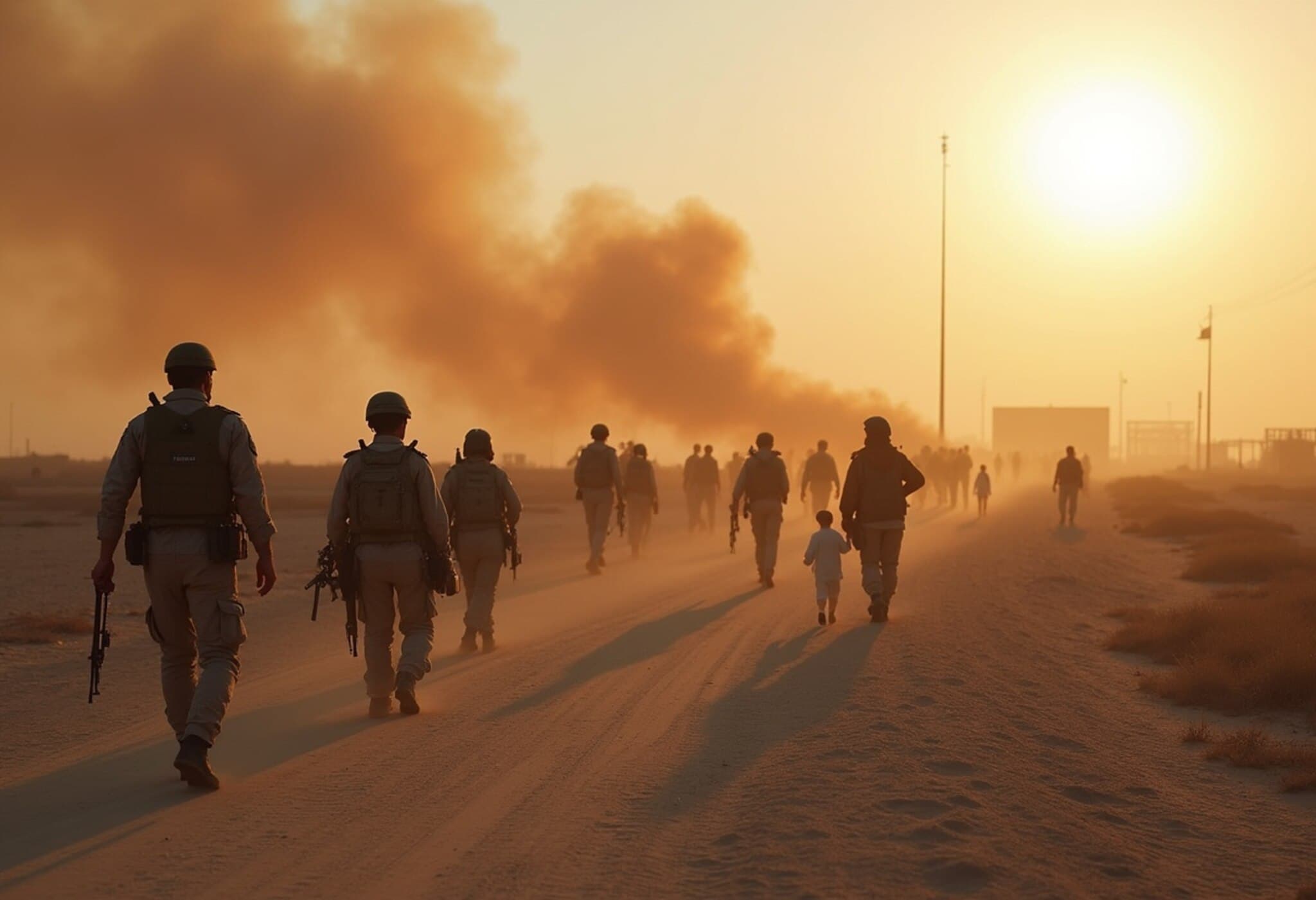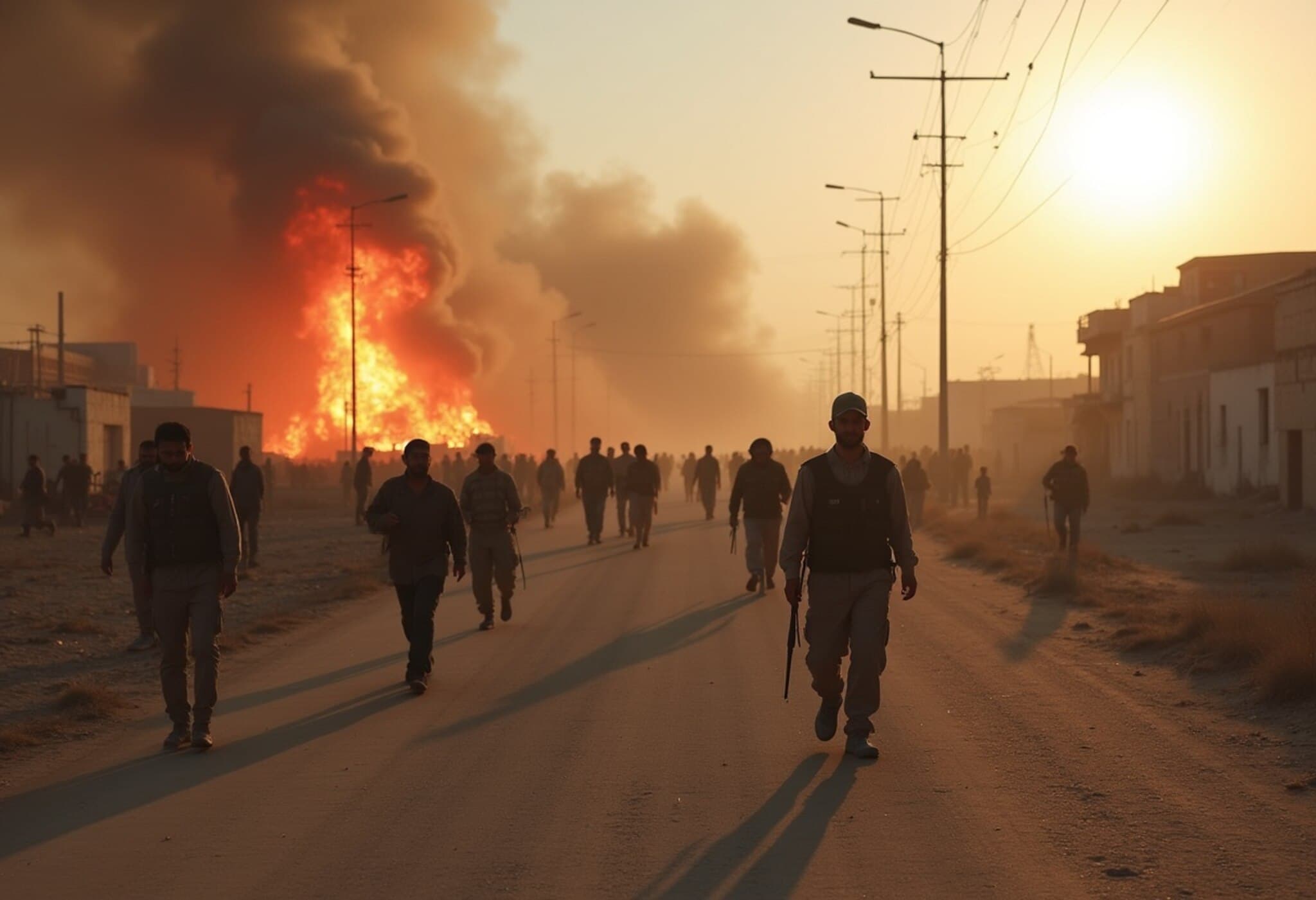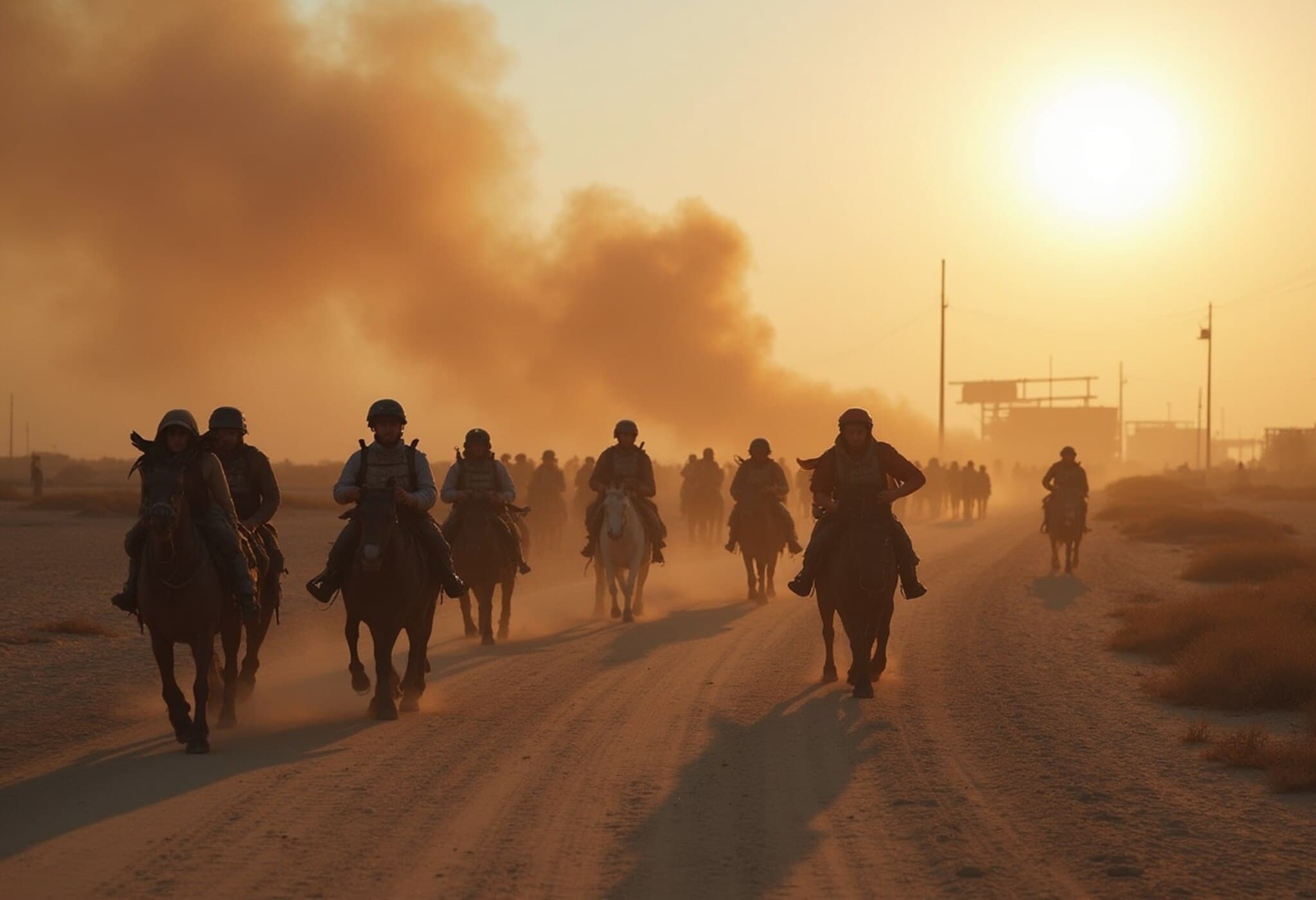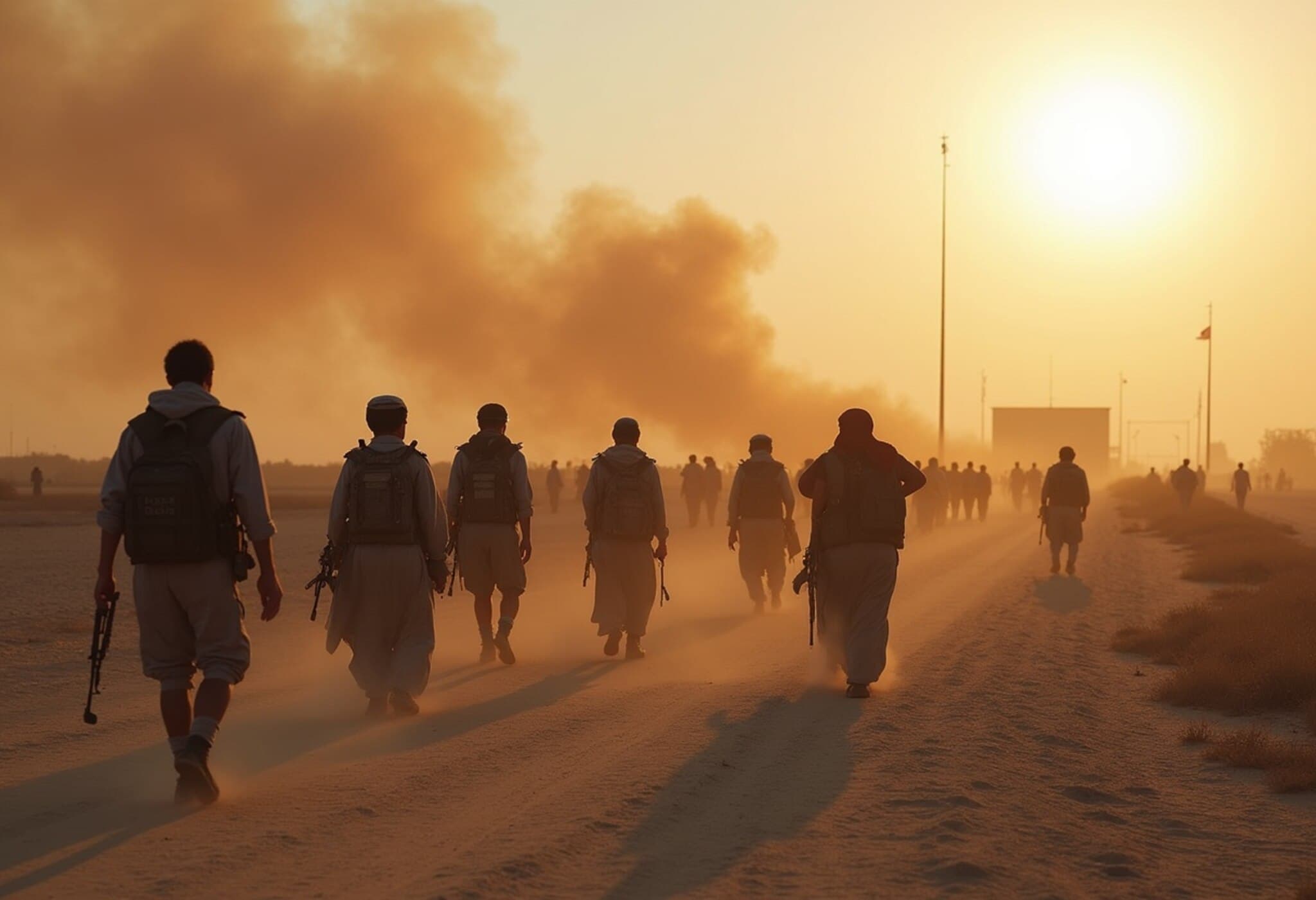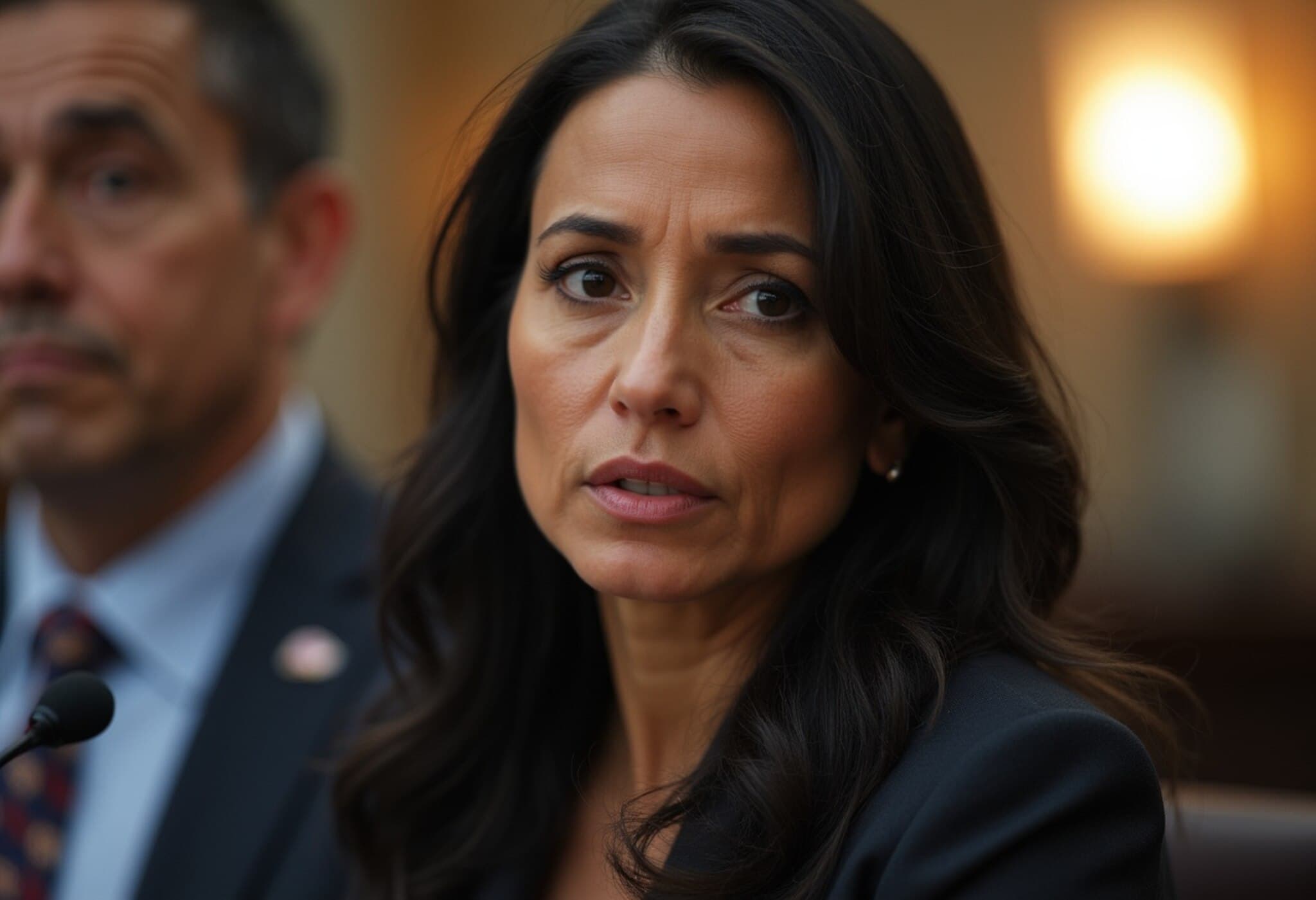Ceasefire Declared Amid Rising Violence in Sweida, Syria
In a significant development amidst weeks of turmoil in southern Syria, the Syrian presidency announced an immediate and comprehensive ceasefire on Saturday, calling on all parties involved to cease hostilities without delay. This comes after intense clashes in the strategic Sweida province, predominantly inhabited by Druze communities, resulted in hundreds of casualties.
Security Forces Mobilize to Stabilize the Region
Earlier the same day, Syria's interior ministry confirmed the deployment of internal security forces to Sweida, signaling the government's intent to reassert control and restore order. The violence, which erupted between Bedouin fighters and Druze factions, rapidly escalated, drawing in government forces from Damascus in an effort to quell the unrest.
International Diplomacy Paves Way for Ceasefire
US envoy Tom Barrack, who serves as Washington’s special representative for Syria and ambassador to Turkey, announced the ceasefire agreement on Friday. He emphasized that the ceasefire was brokered with the backing of key regional players, including Turkey, Jordan, and neighboring countries. According to Barrack, both Syria and Israel agreed to the ceasefire terms.
This diplomatic breakthrough follows Israel's recent military strikes on Syrian government targets, including the defense ministry building in Damascus, marking an escalation in the conflict. Israel’s intervention was positioned as support for Syria’s Druze minority, a community with historical ties and strategic importance in the region.
Complex Regional Dynamics and Minority Protection
Israel has consistently voiced concerns about security along its southern border, advocating for a demilitarized zone to prevent hostile activities. The Druze community, caught between various factions, has become a focal point of this precarious balance. However, Syria’s interim President Ahmed al-Sharaa accused Israel of attempting to exploit sectarian divisions to further destabilize the country.
On a conciliatory note, Israel has agreed to allow limited Syrian government access to Sweida for the next two days, a gesture aimed at easing tensions and facilitating humanitarian efforts.
Calls for Unity Among Syria’s Diverse Communities
Envoy Barrack urged the Druze, Bedouin, Sunni, and other minority groups to abandon armed conflict and work collaboratively towards building a unified Syrian identity. His appeal underlines the deeply fractured nature of Syrian society after more than a decade of civil war, highlighting that true peace depends on reconciliation and inclusion among all ethnic and religious groups.
Expert Insight: Regional Implications and Challenges Ahead
The ceasefire in Sweida marks a fragile step towards stabilizing a volatile region long plagued by sectarian violence and foreign interventions. Experts caution that sustaining peace will require ongoing diplomatic engagement, robust security arrangements, and efforts to address underlying grievances, especially among marginalized minorities like the Druze.
In the broader geopolitical context, Syria’s conflict sits at the intersection of competing regional interests involving Israel, Turkey, Iran, and various Syrian factions. The temporary ceasefire could serve as a crucial confidence-building measure, but the path to lasting peace remains fraught with challenges, including potential provocations and humanitarian needs.
Looking Ahead: What This Ceasefire Means for Syria
- Immediate Impact: A reduction in violent clashes within Sweida province and safer conditions for civilians.
- Security Considerations: Deployment of Syrian internal security forces aims to stabilize the area but requires monitoring to prevent renewed hostilities.
- Diplomatic Dynamics: Cooperation between Syria, Israel, and regional actors highlights the importance of multilateral diplomacy in conflict resolution.
- Humanitarian Outlook: Safeguarding minority groups and addressing displacement and casualties must remain priorities.
Editor’s Note
The fresh ceasefire in Syria’s Sweida region offers a glimmer of hope amid a devastating conflict that has reshaped the Middle East. Yet, lasting peace hinges on more than ceasefire agreements; it demands a commitment from all stakeholders to bridge sectarian divides, protect vulnerable communities, and foster inclusive governance. Observers and policymakers alike must watch closely to see whether this agreement marks the start of reconciliation or a temporary pause in violence. How Syria’s diverse minorities navigate this fragile moment could well define the country’s future stability.

